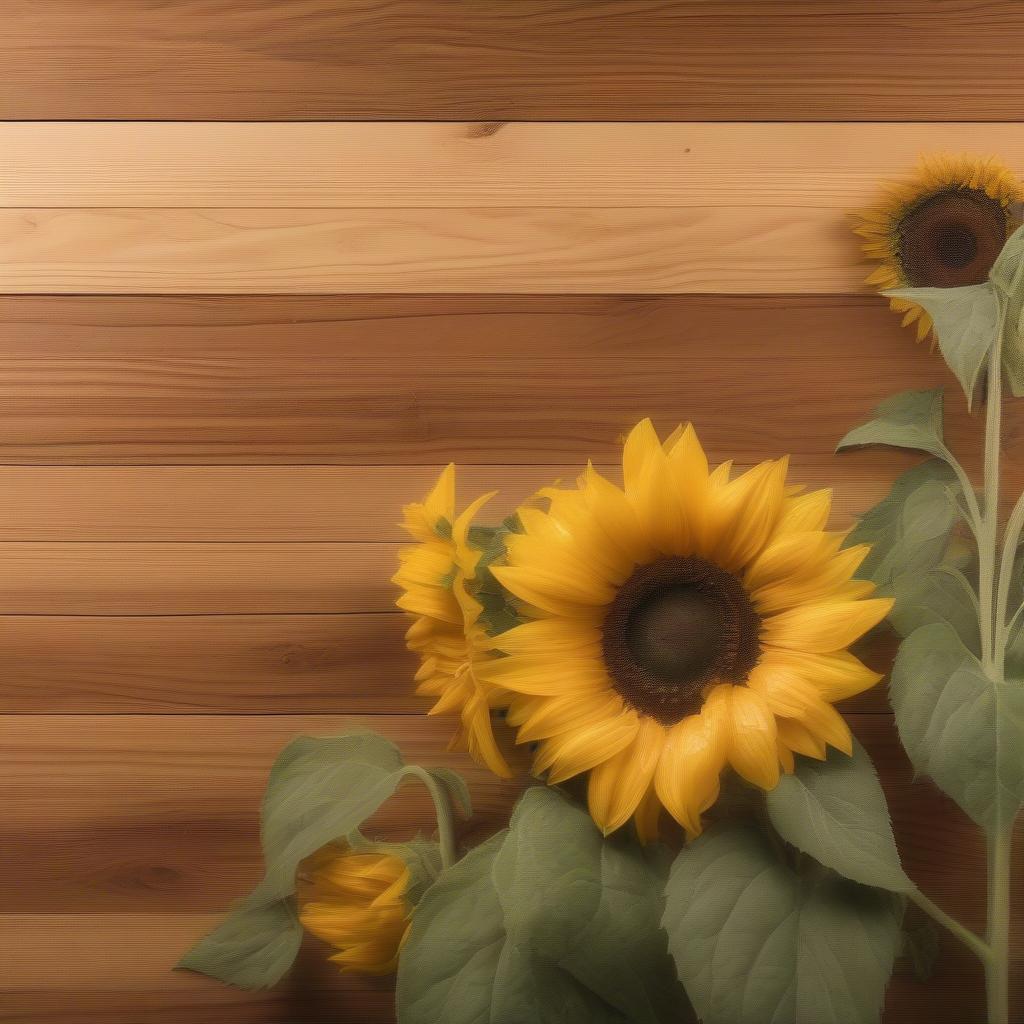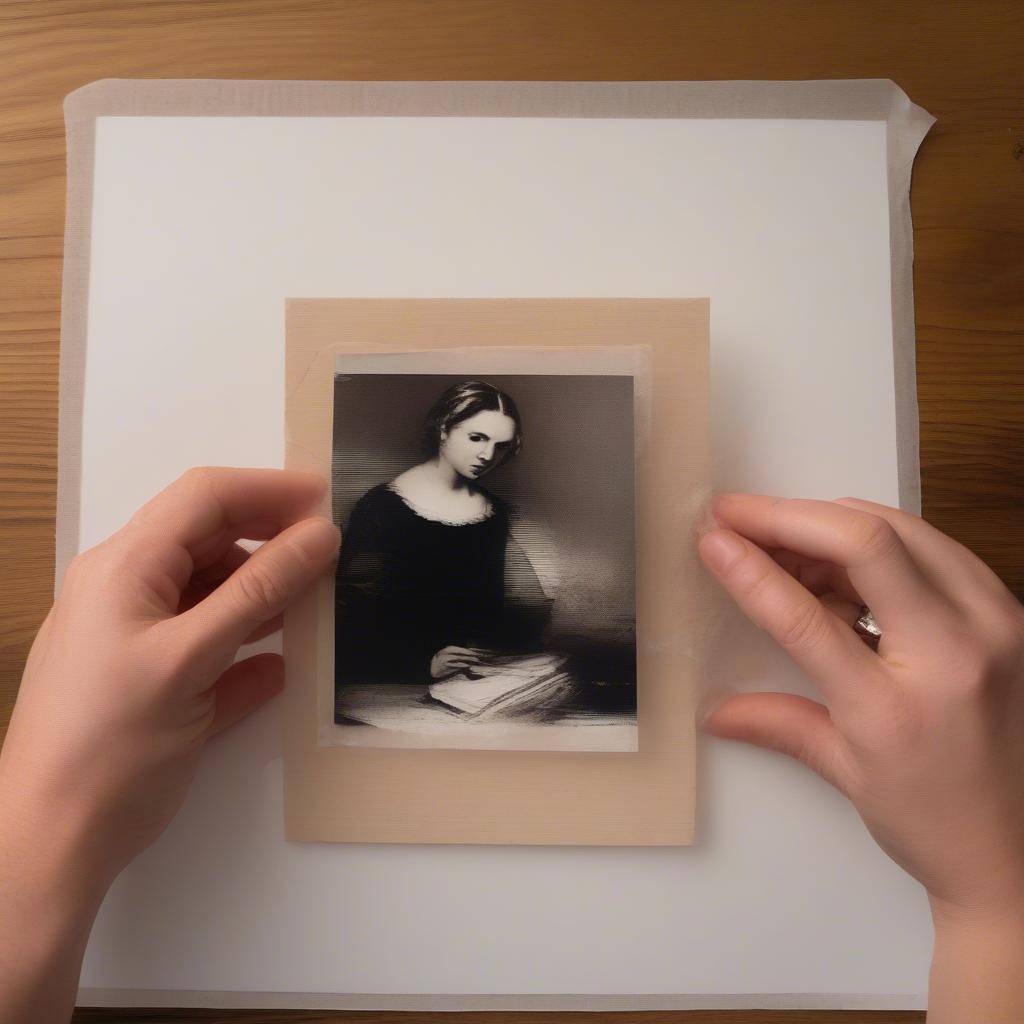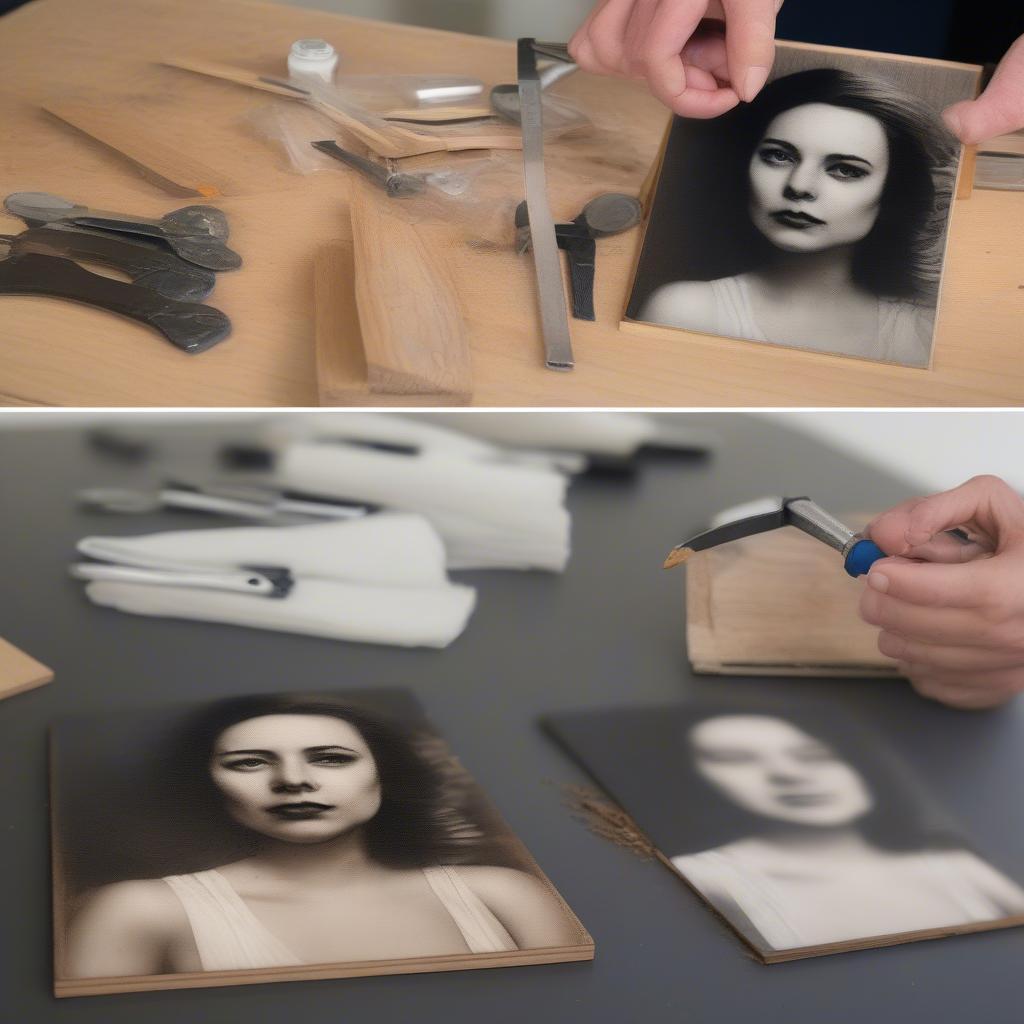Printing Pictures On Wood offers a unique way to showcase cherished memories and create personalized art. Whether you’re a seasoned crafter or just starting out, this guide will delve into the different methods, materials, and techniques involved in printing pictures on wood. christmas ornaments made from pictures can be a great way to personalize your holiday decor.
Understanding the Different Methods for Printing Pictures on Wood
There are several ways to transfer images onto wood, each offering its own advantages and disadvantages. Choosing the right method depends on factors like your budget, desired finish, and technical skills.
The Polyurethane Transfer Method
This technique involves printing your image onto transfer paper specifically designed for polyurethane and then applying it to the wood using a sealant. This method creates a vibrant, long-lasting image that’s sealed onto the wood surface.
 Polyurethane Transfer Method on Wood
Polyurethane Transfer Method on Wood
The Gel Medium Transfer Method
This method involves using a gel medium to adhere a printed image face-down onto the wood. Once the gel medium dries, the paper backing is rubbed away, leaving the image embedded in the gel on the wood surface. This technique offers a vintage, slightly distressed aesthetic.
“The gel medium transfer method adds a certain charm and character to the final piece, especially when working with reclaimed wood,” notes Jane Doe, a renowned woodworking artist.
The Inkjet Transfer Method
This method is perfect for DIY enthusiasts due to its simplicity. It involves printing your image onto regular paper using an inkjet printer and then transferring it to the wood using heat and pressure, usually with an iron. While not as durable as other methods, it’s a cost-effective option for smaller projects.
 Inkjet Transfer Method on Wooden Surface
Inkjet Transfer Method on Wooden Surface
Preparing Your Wood and Image
Proper preparation is key to achieving a high-quality print. Ensure the wood surface is smooth and clean. Sanding may be necessary to remove any imperfections. Choosing the right image resolution is also crucial. A high-resolution image will result in a clearer, more defined print. how to make canvas pictures may also be of interest.
Selecting the Right Type of Wood
Different woods react differently to the various transfer methods. Experiment with different wood types to find one that best suits your project and desired aesthetic.
Applying the Image to the Wood
Follow the specific instructions for your chosen method carefully. Applying even pressure and ensuring a secure bond between the image and wood are critical steps.
“Patience is key when transferring images onto wood. Rushing the process can result in smudging or incomplete transfers,” advises John Smith, a seasoned printmaker.
 Applying Image with Transfer Method
Applying Image with Transfer Method
Finishing and Protecting Your Printed Wood
Once the image is transferred, sealing it with a protective finish is essential. This protects the image from fading, scratching, and environmental damage. canvases pictures are another beautiful way to display your art.
Choosing the Right Sealant
Various sealants are available, each offering different levels of protection. Consider the intended use of your printed wood piece when selecting a sealant. You might consider exploring options for family pictures in the woods for a more natural setting.
Conclusion
Printing pictures on wood allows you to transform ordinary wood into unique, personalized pieces. By understanding the different methods and following proper techniques, you can create lasting artwork and gifts. Remember to choose the method that best suits your skill level and desired outcome. Printing pictures on wood is a rewarding craft that combines art and practicality. Consider buy canvas pictures online if you’re looking for readily available options.
FAQ
- What type of paper should I use for inkjet transfers?
- Can I print pictures on any type of wood?
- What’s the best sealant for outdoor use?
- How do I prevent image distortion during transfer?
- What’s the difference between the gel and polyurethane methods?
- Can I use this method on curved surfaces?
- Where can I find transfer paper?
For further assistance, please contact us at My Dinh, Hanoi, Vietnam or San Francisco, CA 94105, USA. We have a 24/7 customer support team available to assist you.


